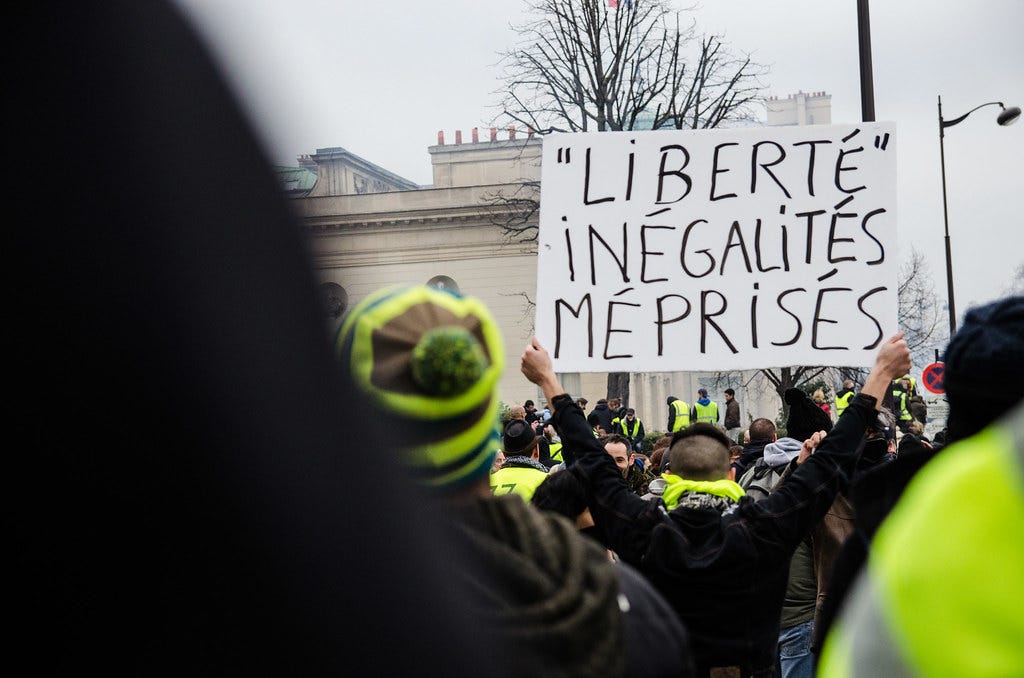They Say We Need a Transformation…
Why climate technocracy goes wrong
Matt Huber published a thoughtful piece in Unherd a few weeks back. He points out how bean counting environmental policies from the left, whether it is green taxes or London mayor Sadiq Khan’s implementation of Ultra Low Emission Zone’s, end up playing into the hands of the populist right.
Such policies threaten to make the cost of living for ordinary citizens more expensive, driving the gains of the far-right AfD in Germany, spurring the yellow vest movement in France. It allows folks like Charles Koch portray themselves as defenders of normal, red-blooded American workers.

But the problems go far deeper than just increasing costs in an era already characterized by high inflation, precarity, and economic inequality. Huber criticizes the condescending finger-wagging about lifestyles that comes with it.
Eat vegan. Stop driving. Buy less stuff, you filthy consumerist animal!
Portraying consumption, economic growth, or even having children as ecological sins is tone deaf when done by academics and activists, who usually find themselves already comfortably in the middle to upper-middle class. It is understandable that workers who only make enough to pay their bills or hope for a better life for their children are drawn to the right.
I worry that a fanatical sense of moral certitude among much of the left, researchers, and climate activists will prevent much-needed course correction. I pointed out in The Breakthrough Journal a number of weeks back that “transformative change” is quickly becoming theses groups’ guiding mantra. Calls for transformative change portray the answer to global environmental problem as demanding nothing short of complete social, economic, technological, and cultural upheaval. And typically the implication is that we need to abandon economic growth and/or capitalism, a belief that is widely shared by climate researchers but remains rare among ordinary citizens.

But transformative change has almost never been a peaceful process—historically speaking. Political change is normally incremental for good reason. Few are content to sit around and accept the imposition of someone else’s idealistic and speculative vision of a better future, especially when they potentially stand to lose whatever good they now enjoy in their lives. It doesn’t matter if it’s ostensibly “following the science.”
However sensible it may seem from in light of the urgency of climate change or when modeling potential environmental futures, transformative change makes for obtuse politics. It feeds into populist portrayals of environmentalists as part of an international cabal conspiring to remake the world in ways that limits peoples’ freedoms and that will end widespread economic prosperity. It risks adding to the mistrust in science inadvertently and unintelligently sown during the pandemic.
It is much too easy to become overly enamored with knowing the “correct answer” to the global problems that humanity faces, so much so that democracy falls by the wayside. People become so focused on implementing what they believe to be right, they forget that we only get anywhere by working together. Only by striving to bring skeptics and fence sitters with us, working to reconcile “saving the environment” with diverse visions of the “good life”, and instilling widespread trust in climate policy, can we hope to ever realize anything like transformative change.



